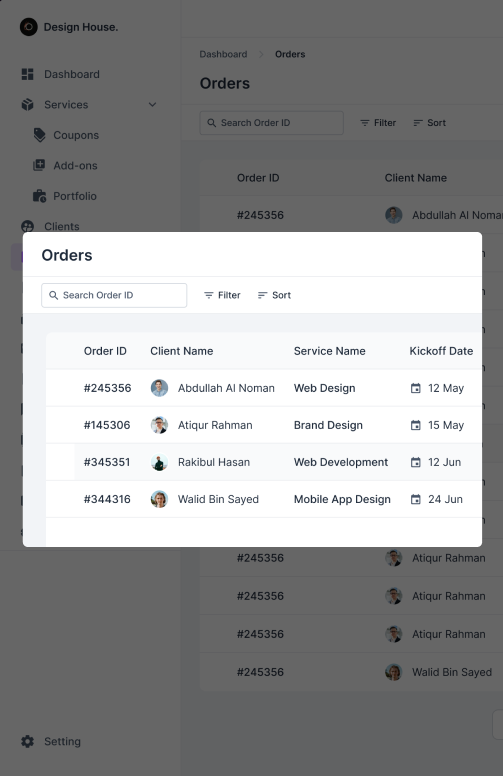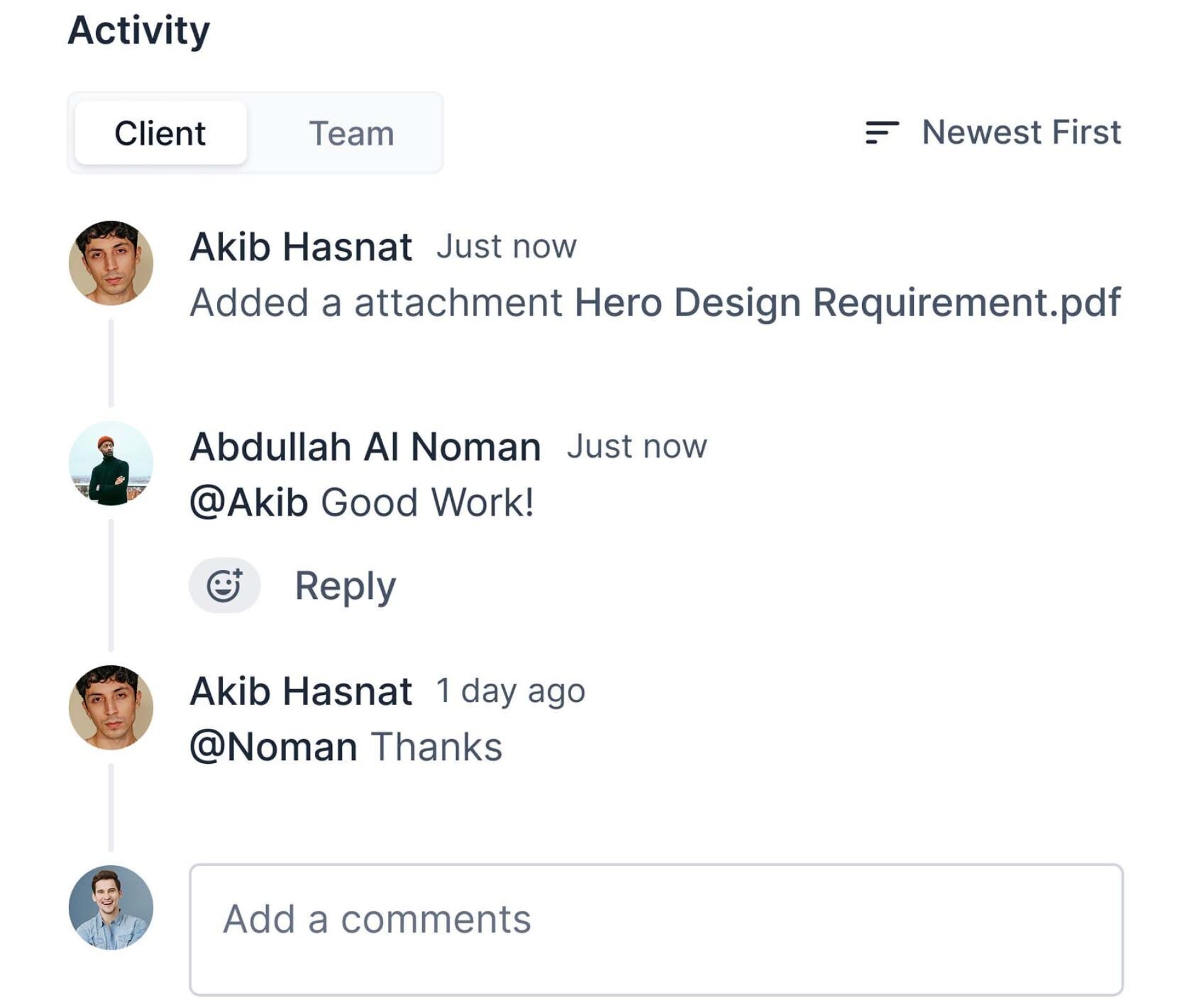One place to onboard clients, manage services, execute tasks, and get paid.
No credit card.
No setup headaches.

Trusted by 1,000+ Businesses and Agencies







Let clients explore your services, purchase single or group packages, and get onboarded - without the back-and-forth.
List your one-time or recurring services with clear pricing and descriptions into multiple packages (e.g., Starter, Pro, Premium).
Embed your service catalog into client facing pages or share links directly on social media. Choose which services to display publicly and which to keep exclusive.
List your one-time or recurring services with clear pricing and descriptions into multipackages (e.g., Starter, Pro, Premium).
Join the thousands of businesses transforming their client experience.
Track work, tasks, and deliverables once a client is onboarded with the best client management app.
Every client order creates a project space with pre-built repetitive tasks and deadlines.
Assign tasks automatically based on service type, project phase, or workload balance.
Visualize projects and tasks across multiple views—Kanban and list—to stay on top of every moving part.

Let your clients stay in the loop and move work forward faster—right inside their own portal.

Loop clients into the workflow by letting them comment, review, and approve directly inside tasks.

Mark any task that needs approval and send it directly for review once it’s submitted. No chasing.

Let your clients stay in the loop and move work forward faster—right inside their own portal.

Manage one-time projects, monthly retainers, or milestone-based payments—all from a single dashboard.
Generate branded invoices tied to services or projects, and send them automatically or manually.
Access everything in one place: orders, tickets, invoices, payments, and notes—no digging required.
Accept payments via Stripe, PayPal, Wise, or manual banking to get paid on time, anytime.

Add new clients in seconds, organize their info, and keep everything connected—from files to projects to people.
Create client records manually or through forms. Add key details like contact info, company name, and assigned manager—all from one screen.
Access a complete picture of every client in one click. Tickets, invoices, payments, and notes—no digging required.
Sort by status, tag by industry or package, and filter by team or client type. Keep your dashboard clean and organized at scale






Manage clients, tasks, feedback, and billing—all in one place. Empower your team to deliver, and your clients to stay in the loop.
Assign tasks, track work, manage orders, and centralize every client detail.

Let your clients log in, leave feedback, track progress, and handle billing—all without asking you twice.

Whether you're solo or scaling, create unlimited clients, services, and workspaces
Real people. Real help. No bots. Get answers from product experts in one click.
Secure data encryption, consistent uptime, and an interface your clients can use.
Yes, we don’t nickel and dime you for every little feature. Here are more questions and answers regarding our client management software
Client management software is a tool to help businesses organize and manage client data, projects, communication, tasks, and billing—all in one platform.
While both manage client data, CRM software focuses more on leads and sales pipelines. Client management software goes further by maintaining client relationships, supporting project deadlines and deliverables, communication, invoicing, and collaboration after the sale.
The best way to keep track of your clients is by using simple, easy-to-use client management software according to your clients needs. It helps you keep everything in one place—contacts, tasks, files, payments, and notes—so nothing gets lost.
It can. Agency Handy offers a built-in CRM for leads and clients, complete with custom fields, contact details, activity logs, and a Kanban view for sales pipelines. And even in the lead profiles, you can assign a sales rep to maintain customer relationships.
Yes. Whether you’re a solo freelancer or running a growing team, Agency Handy scales with you. Plans start with core features and grow with multi-user support, branding, and automation.
Look for software that covers the full client lifecycle—from onboarding to billing. Must-have features include contact and company profiles, internal notes, role-based access, and activity timelines. You’ll also want integrated communication tools (chat, comments, or messages), support for service tracking, automated invoicing, and document sharing. For service businesses, flexible client grouping, intake forms, and white-label branding are key to creating a polished client experience. If you’re scaling, look for tools that support multiple workspaces, team assignments, and permission controls.
Whether you’re managing 5 or 50 clients, Agency Handy helps you stay organized, get paid on time, and never miss a task.

Exclusive Holiday Sale